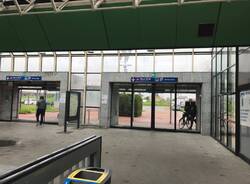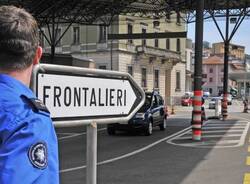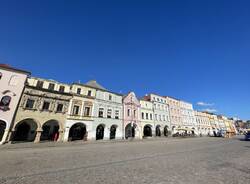Luigi Orrigoni left us ten years ago
The memory of a man, an entrepreneur who devoted himself to the local communities, who was the founder of Tigros Supermarkets

Luigi Orrigoni, the businessman who created Tigros Supermarkets, died ten years ago. This sentence, however, says nothing about the man, who, during his life, had many insights into the world of business and its social value.
Orrigoni faced many entrepreneurial challenges in very different sectors: from the marketing of wines and mineral waters to the automobile industry, from mobile telephones to engineering. To these, we must add a period spent in professional sport, with Varese Calcio, of which he was the Chairman in the early 90s, and his political commitment as the Deputy Mayor of Castronno.
An expert in business administration would call him a systematic entrepreneur, a quality that is not learned, an essential characteristic that makes this figure special. An entrepreneur sees hidden needs in society, identifies areas of change, creates visions of possible development and builds his business on these, just as Luigi Orrigoni did when he foresaw in good time the decline of door-to-door delivery, and turned his warehouse in Castronno into a shop that sold wine and drinks, and other foodstuffs.
The Orrigoni family, who are originally from Castronno, have deep roots in the local area. From the very beginning, it was this bond that distinguished this supermarket business, with its trademark of the tiger with an apple on its head. After Castronno and Buguggiate, at the beginning of the 1980s, the first Tigros outlets, with a night safe and goods on display, were opened in Azzate and Castiglione Olona. These were not large spaces but shops that were different from others in terms of the service they provided, similar to that of a supermarket, with a good quality/price ratio, that were also able to maintain the feeling of closeness typical of a corner shop. Luigi Orrigoni wanted to open one in every village, recruiting staff locally, so that the relations with customers would not be anonymous, and taking on managers who did not come from the competition. He was an entrepreneur who did not suffer the market, but guided it, who did not imitate the big names in the market, but created an original distribution model that could be defined “glocal”, in which the local area and relations with customers and suppliers are essential.
Orrigoni always put people and the growth of the local community first. He did not delegate managers to represent him in relations with collaborators, but was personally involved. Branding him as paternalistic would be limited, because he was much more. The company was a social asset, not just a place where people work but also a subject that brings together families, associations and organised groups, on the basis of shared values. This last point also explains the intense activity of patronage that marked the life of this man, who was aware of the responsibility that an entrepreneur has to his community, where facts, action and concrete availability are important.
A memory of Don Peppino Maffi, the parish priest of Varese, is typical. After a dinner with politicians and businesspeople, he was approached by Orrigoni, who said, “I’m tired of words. Do you have a project you can share, maybe a restoration project?” Don Peppino Maffi had to restore the San Giovanni Baptistery urgently. “Tell me how much it is, and don’t worry, I’ll pay it all.”
Orrigoni’s story is also an example of entrepreneurial success, which has always been the Achilles’s heel of Italian, family capitalism. It cannot be taken for granted that the child of an entrepreneur will have the right characteristics to become one in turn. For various reasons, Manuela, Paolo and Mariaveronica were always naturally involved in the family’s businesses. Indeed, their father was in the habit of sharing with his family the work relations and trips. He did this with full transparency, helped greatly also by his wife Augusta.
At the begin of the 2000s, with the support of his children Paolo and Manuela, Luigi Orrigoni began a programme to renovate the shops, and to open new Tigros supermarkets. However, his plans were interrupted by disease, and his death, on 18 February, 2008. The programme of developing the Tigros supermarkets started again immediately after, just as he would have wanted, thanks to the commitment of his children.
A moment of commemoration
On Monday, 19 February, at 8.30 a.m., in the Basilica of San Vittore, in Varese, a mass will be held to commemorate the anniversary of Luigi Orrigoni’s death.
TAG ARTICOLO
La community di VareseNews
Loro ne fanno già parte
Ultimi commenti
Tsilvia su La patente a 18 anni? "Non è più uno status symbol"
PaoloFilterfree su "La sanità pubblica è a rischio privatizzazione": la raccolta firme on line contro il taglio delle tariffe
elenera su La patente a 18 anni? "Non è più uno status symbol"
Felice su La patente a 18 anni? "Non è più uno status symbol"
Alessandra Toni su "La sanità pubblica è a rischio privatizzazione": la raccolta firme on line contro il taglio delle tariffe
lenny54 su "La sanità pubblica è a rischio privatizzazione": la raccolta firme on line contro il taglio delle tariffe














Accedi o registrati per commentare questo articolo.
L'email è richiesta ma non verrà mostrata ai visitatori. Il contenuto di questo commento esprime il pensiero dell'autore e non rappresenta la linea editoriale di VareseNews.it, che rimane autonoma e indipendente. I messaggi inclusi nei commenti non sono testi giornalistici, ma post inviati dai singoli lettori che possono essere automaticamente pubblicati senza filtro preventivo. I commenti che includano uno o più link a siti esterni verranno rimossi in automatico dal sistema.